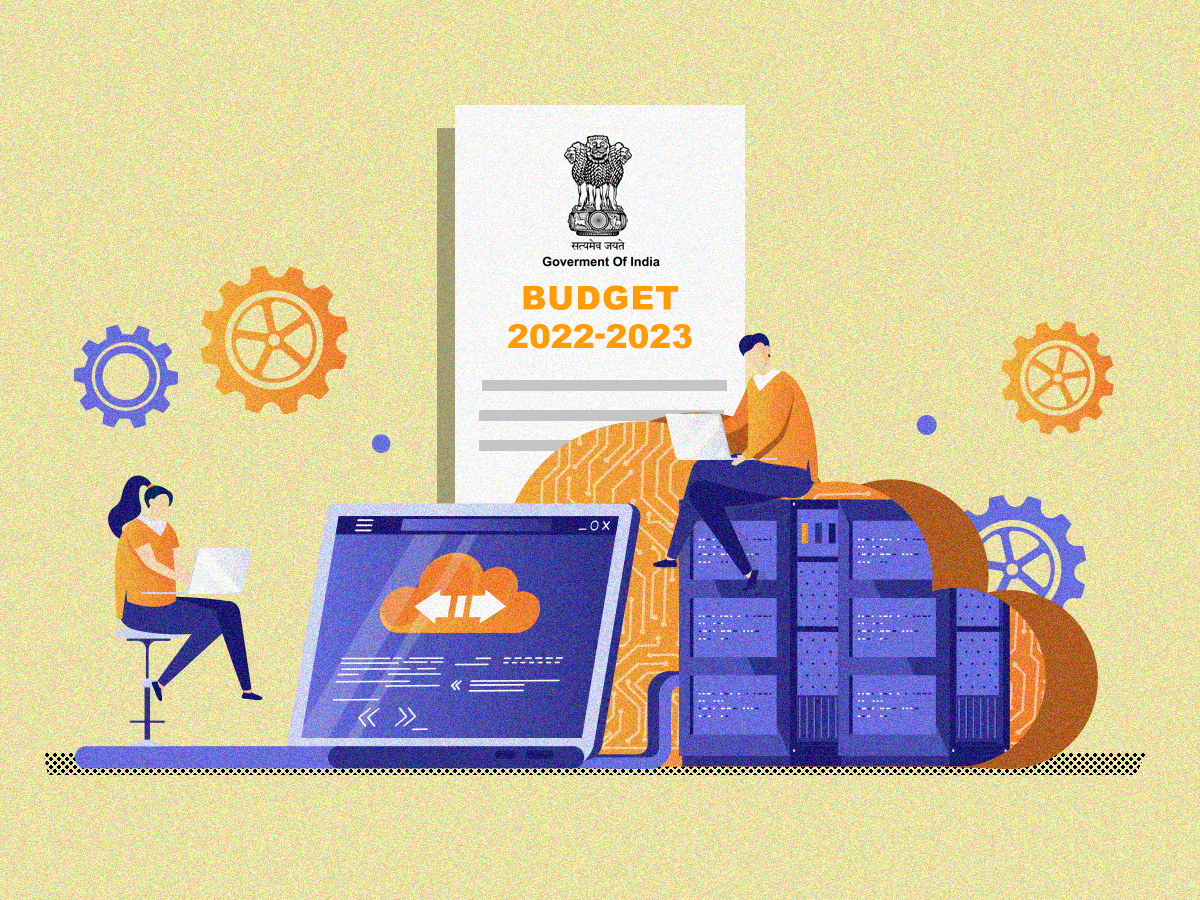Tech Mahindra Q3 profit slides as demand cools; key Apple supplier making components for AirPods locally
Also in this letter:
■ ChatGPT disrupts the internet, forcing rivals to up the ante
■ ETtech Explainer: RBI’s ban on SBM Bank’s forex transactions
■ Apple supplier begins making parts of AirPods in India: report
Tech Mahindra net profit falls 5% YoY to Rs 1,297 crore

Tech Mahindra’s consolidated net profit for the quarter ended December declined 5.3% year-on-year (YoY) to Rs 1,297 crore. Revenue from operations increased 20% YoY to Rs 13,735 crore.
By the numbers: Revenue from operations increased 20% YoY to Rs 13,735 crore. Operating profit, calculated as earnings before interest, taxes, depreciation and amortization (EBITDA), rose 8% sequentially and 4% YoY to Rs 2,144 crore, the company said.
The net new deal wins for the quarter was at $795 million, higher than $716 million in the previous quarter, and $704 million during the same quarter a year ago.
Similar to other IT services firms, Tech Mahindra, too, saw a sharp moderation in attrition. Its last twelve months (LTM) attrition rate dropped to 17% in the quarter under review from 20% in the previous quarter.
Quote, unquote: “We are witnessing moderation in growth given the tough macroeconomic environment. We will continue to work with our customers to pre-empt their technological requirements and identify new demand drivers, especially for digital services,” said C P Gurnani, managing director and CEO of Tech Mahindra, in a press statement.
Headcount: The net headcount was down by 7,844 as of December, when compared to the September quarter at 163,912.
Like peers, Tech Mahindra too, saw a sharp moderation in the attrition. The last twelve months (LTM) attrition rate dropped to 17% from 20% a quarter ago. The utilisation rate also saw an improvement to 86% in the quarter from 85% a quarter ago.
Apple supplier Jabil begins making parts of AirPods in India: report
.jpg)
A key Apple supplier has begun making components for AirPods in India as the iPhone maker looks to expand production in the country. The Indian unit of Jabil Inc. has begun shipping AirPods enclosures to China and Vietnam, where the wireless earphones are assembled, a Bloomberg report said.
Production shift: Apple is looking to shift some of its production out of China, which makes nearly 98% of iPhones, in view of Covid-related disruptions that affected the production at the world’s biggest iPhone factory.
The development comes after Apple in October had reportedly asked its suppliers to move some AirPods and Beats headphone production to India. With this, AirPods would be the second Apple product after the iPhone to be partially manufactured in the country.
Apple’s big India bet: Apple exported more than $2.5 billion of its devices from India from April to December, the report said. The government earlier this month gave initial clearances to more than a dozen of Apple’s Chinese suppliers to expand in the country via joint ventures with Indian partners. Luxshare Precision Industry, one of Apple’s Chinese suppliers which makes AirPods, is among the companies gaining that approval, according to the Bloomberg report.
‘Make in India’: Union Commerce minister Piyush Goyal recently said Apple wants India to account for up to 25% of its production from about 5% currently. “The iPhone maker continues to move its manufacturing away from China,” he said.
Budget 2023: India imports thousands of electronic components, denting Modi government’s self-reliance push

India is moving at a rapid pace to become a global leader in electronics manufacturing. However, this goal is not achievable until there is a synchronised ecosystem in place and industry experts believe that the country is lacking on this front.
Reason: Hamish Patel, chief product officer, World of Play, which makes Bluetooth headphones, neckbands, smartwatches, said the electronics sector lacks a full-fledged component ecosystem, which results in higher import costs and increased lead time for the manufacturers.
Quote, unquote: “A typical electronic manufacturing site needs thousands of components to be procured from around the world to make the end product. As many of the parts are imported, it results in heavy costs and time overrun,” says Sanjay Gupta, vice chairman, India Electronics & Semiconductor Association (IESA).
Challenges for manufacturers: Apart from the heavy dependence on imports, challenges such as limited infrastructure, high taxes and tariffs, inadequate logistics and supply chain management also add to the woes of the manufacturers, says Amit Khatri, co-founder, Noise.
Industry’s expectation: Patel said tax exemptions and schemes will boost the confidence of investors and entrepreneurs, leading to the creation of a component manufacturing ecosystem.
“We expect the government to ensure better synchronisation between customs, tax and GST authorities. Apart from this, a reduction in duty on raw materials would also go a long way in boosting the confidence of local manufacturers and brands,” he said.
Also read: Indian electronics manufacturing to cross Rs 1.28 lakh crore next fiscal: Rajeev Chandrasekhar
ChatGPT disrupts the internet, forcing rivals to up the ante

OpenAI’s recently launched chatbot ChatGPT has disrupted the internet, forcing technology giants such as Google to put their thinking hats on. ChatGPT wowed people with its ability to formulate detailed and human-like answers on a wide range of subjects in a few seconds.
Microsoft investment: Microsoft injected $10 billion into the company, after having earlier invested in 2019 and 2021. Without disclosing the specific financial terms of the deal, Microsoft said it is a “multiyear, multibillion-dollar investment to accelerate AI breakthroughs”.
Rivals step up the game: Google has declared “Code Red” as it perceives ChatGPT to be a threat to its search business. The search engine giant even rang up its founders Larry Page and Sergey Brin to chalk out a plan. CEO Sundar Pichai has also held a series of meetings with top executives to discuss its AI strategy.
Chinese tech giant Baidu plans to launch an artificial intelligence (AI) chatbot service similar to ChatGPT in March, reported Bloomberg.
Meanwhile, San Francisco-based AI startup Anthropic is in talks to raise roughly $300 million in funding, which could value the firm at roughly $5 billion.
ETtech Explainer: RBI’s ban on SBM Bank’s forex transactions & its impact on fintechs

The Reserve Bank of India (RBI) last week ordered State Bank of Mauritius (SBM) India to stop all transactions under the liberalised remittance scheme with immediate effect after discovering “material supervisory concerns”. The move also had an impact on at least seven or eight fintech companies along with several offline players that had active partnerships with the bank.
Jargon buster: Under the Liberalised Remittance Scheme, which was introduced by the banking regulator in 2004, Indian residents, including minors, are allowed to freely remit up to $2,50,000 per financial year for any permissible current or capital account transaction or a combination of both.
Affected companies: The RBI move has directly affected neobanking fintechs Niyo and Zolve, and US-stock investment platforms such as IndMoney and Vested Finance.
SBM’s response: According to customer communication sent out by the bank, SBM is engaging with RBI to address “supervisory concerns”.
“We would like to state that SBM Bank (India) Ltd. is committed to upholding the highest standard of banking. SBM Bank (India) Ltd. remains open for business in all other areas,” it said in the email.
Today’s ETtech Top 5 newsletter was curated by Megha Mishra in Mumbai and Erick Massey in Delhi. Graphics and illustrations by Rahul Awasthi.
For all the latest Technology News Click Here

